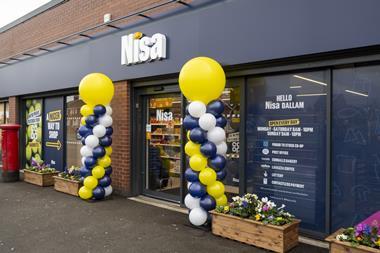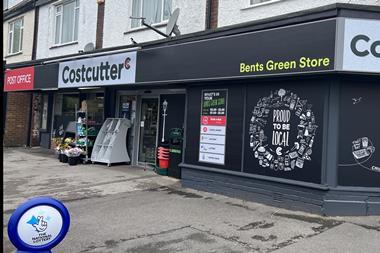Amerger of Costcutter and a mutual company the size of Nisa-Today's is bound to involve strong feelings and a lot of speculation, as is the involvement of venture capitalist Kaupthing. So it's not surprising that those at the heart of the deal have moved swiftly to outline their vision, dubbed 'Project Tomorrow', to The Grocer. They want to win over the trade, particularly the 950 retail and wholesale shareholders who could block the grand design if more than 25% veto the deal in a vote on July 3.
The men at the centre of the move insist it will ultimately strengthen the hand of independent retailers. According to Nisa-Today's, the merged force would have 5,000 franchised and company-owned stores and a 6% market share of the c-store sector - more than Tesco, Spar or the Co-ops. Both Costcutter and Nisa-Today's say their individual retail and wholesale brands would be maintained post-merger.
Neil Turton, Nisa-Today's chief operating officer, says the plan couldn't be more timely for independents. "If we can improve services together, we increase efficiency for our retail customers. And the sector has been challenged by John Fingleton, chief executive of the Office of Fair Trading, to become more efficient."
Turton highlights Fingleton's inclination to remain less sympathetic towards the cause of the independents against the major supermarkets while their supply chain is not operating at peak. But some argue that talk of increased buying power is nonsense. After all, they say, doesn't Costcutter, as Nisa-Today's biggest customer, buy through the organisation anyway?
For Colin Graves, executive chairman of Costcutter, the benefits lie as much in savings to be achieved by joining forces. "It's true that Costcutter accounts for 35-40% of volumes through Nisa-Today's central distribution," says Graves. "But there are still effectively two buying departments."
Turton adds: "There's a lot of duplication. We each have space planning departments, for example, so a merger makes sense."
Nisa-Today's insures Costcutter, its biggest customer, for £500,000 against collapse, another cost that could be cut if the deal goes ahead.
But Graves argues that there's also much to be gained from pooling separate areas of expertise. "Costcutter has its own EPoS solution; we do drop shipment supplies; we specialise in in-store development; and we run national TV and press adverts. Nisa-Today's does none of these. Costcutter also has a strong active field sales force that can help Nisa-Today's retailers grow their businesses."
On the other hand, Nisa-Today's expertise in negotiating the best rates on retail services, such as utilities, will help Costcutter retailers.
For a long time, Nisa-Today's chairman Dudley Ramsden has consistently aimed to boost Nisa-Today's clout through a merger. As far back as November 1997, he spoke about creating a united buying group for independents to stand against the multiples. He is known to be disappointed that Nisa-Today's was blocked from bidding for Londis, which was bought by Musgrave in 2004.
However, some disaffected retail and wholesale members within Nisa-Today's claim this deal, which was unanimously approved by all 18 board members, is not about strengthening the hand of independent retailers at all. Surely, they say, the individuals directly involved stand to gain substantially.
Concerns were fuelled last week by the lack of detail on the merger, but Ramsden has written to shareholders and is briefing members.
Turton acknowledges that Ramsden and Graves will both receive a 10% stake in the new company, while Ramsden will get an additional £6m in preference shares as a Nisa-Today's founder. But he says Nisa-Today's board members who are buying stakes are cashing in long-term investment plans and taking salary cuts of 25%. Conversely, each wholesale and retail member stands to gain an instant £50,000 in cash, plus £30,000 in shares over two years.
But what if Kaupthing decides to cash in its stake in a few years? Kaupthing says it is a longer term investor that wants to build the business through bolt-ons and investment in services. It will have a minority stake - so, if it sells, the group would not fall apart.
All round, the deal sounds positive for those involved. Turton says: "This was an important decision, taken with maturity. It could give independents a real chance against the supermarkets."n
Board structure
According to Nisa-Today's, Colin Graves would be chief executive of the company created by the proposed merger and Dudley Ramsden would be chairman.
In addition, there would be two other executive members: Neil Turton as commercial director and Costcutter MD Nick Ivel, who would become operations director.
There would be seven non-executive members, including three Nisa-Today's members, one representing larger retailers, one representing smaller retailers and one representing wholesalers. Two non-executive directorships would go to David Sherratt, head of principal investments at Kaupthing, and Ben Barnett, vice president of Kaupthing's principal investments. Finally, there would be two independent non-executive directors, Malcolm Hepworth, former retail boss at The Co-operative Group, and Ian Blakey, former chairman of Hull and East Yorkshire Hospitals Trust.


















No comments yet